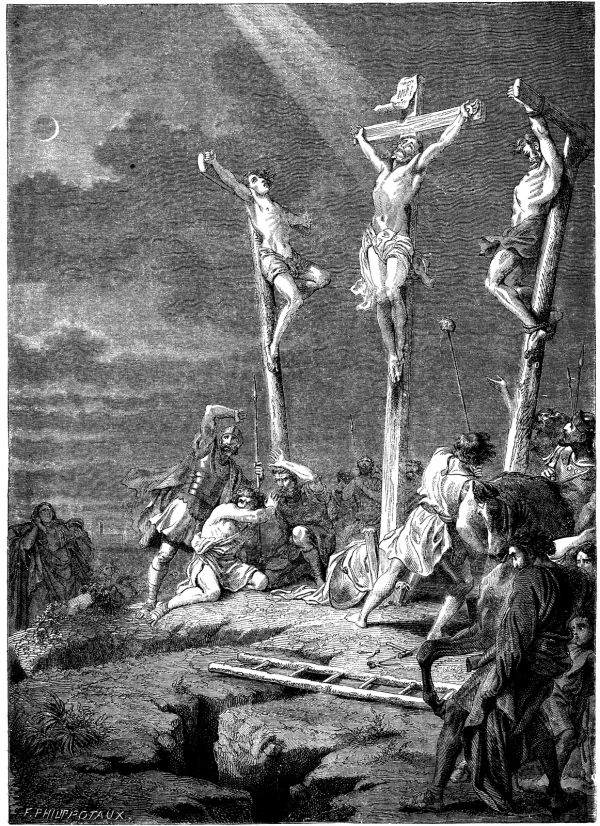Men like Jesus and Paul, whose great aim was to benefit and to elevate human nature, however widely we may differ from them, deserve the student’s laborious research, the philanthropist’s most profound admiration, the monuments which the human mind rears to their memory.
Today we continue Christianity Appears
with a selection from The Origin of Christianity, and a Commentary on the Acts of the Apostles by Isaac M. Wise published in 1868. The selections are presented in a series of installments for 5 minute daily reading.
Previously in Christianity Appears.
Time: 325
Place: Nicea

The third century inherited four distinct systems of Christianity: that of Jesus with the pure theocracy, that of Peter with the Messiah and his second advent, that of Paul with the Son of God and the approaching end of all flesh, and that of John with the Logos and the self-aggrandizing demi-god or man-god on earth. The difficulties and dissensions arising from the attempts at uniting all these contradictory systems in one, ended with the Council of Nice, in the beginning of the fourth century, and the establishment of an orthodox creed, the excommunication of the Jewish Christians, and the establishment of the Church as a state institution. Then the sword and the pyre established doctrines.
On comparison you will find that Jesus became the Saviour of the Gentiles by the exertion of Paul; that the means which Peter and Paul adopted for momentary purposes have been turned into main dogmas; that the religion which Jesus taught and believed is partly laid aside, and the rest is unimportant in Christology, but he himself has been adopted in place of his religion; and that the entire New Testament has no knowledge of the Trinity and the orthodox creed. On comparison you will discover that, if any of our modern congregations are Christian, the apostolic congregation of Jerusalem was heretic. If the pope is a Christian, Paul was not. If the orthodox creed tells what one must believe in order to be a Christian, then Jesus of Nazareth was a Jew. If the religion and the theocracy which Jesus preached are to become the universal religion, all dogmas must fall, and God alone be all in all. Man must become his own priest, prince, and prophet. Justice must govern the nations, love must construe the law, virtue and righteousness must lead to satisfaction and happiness, and man’s consciousness of God, immortality, morals, and moral responsibility must be his catechism, his guiding star, his protecting angel in life and death. No dogmas; truth, in the name of God!
I see it, although it is not now; I behold it, although it is not nigh. A star will arise from Jacob in whose soft brilliancy will shine forth all the great and redeeming truth. Freedom and humanity, justice and love in the name of God, are the right religion; to strive for them is divine worship, to love them is holiness.
This was the object of Paul. The means to accomplish that object were the necessities of the age to convert that generation. He could not dream of the idea that the means would obscure the object, that the servant would occupy the master’s seat. His was a fearless, powerful, and unyielding character, terribly in earnest to break down the ancient world and create a new one, and his success, though incomplete, was wonderful. Men like Jesus and Paul, whose great aim was to benefit and to elevate human nature, however widely we may differ from them, deserve the student’s laborious research, the philanthropist’s most profound admiration, the monuments which the human mind rears to their memory. Great works are the testimony of their authors, and great minds are the diadem and honor, the ornament and pride of human nature. The God Jesus and the supernatural Paul appear small in the focus of reason. The patriotic and enthusiastic Jesus and the brave, bold, wise, and mighty Paul are grand types of humanity among those hundred stars in the horizon of history which have made the history of the human family.
| <—Previous | Master List | Next—> |
J. Ernest Renan begins here. Isaac M. Wise begins here. John Henry Newman begins here.
More information here and here, and below.
We want to take this site to the next level but we need money to do that. Please contribute directly by signing up at https://www.patreon.com/history

Leave a Reply
You must be logged in to post a comment.